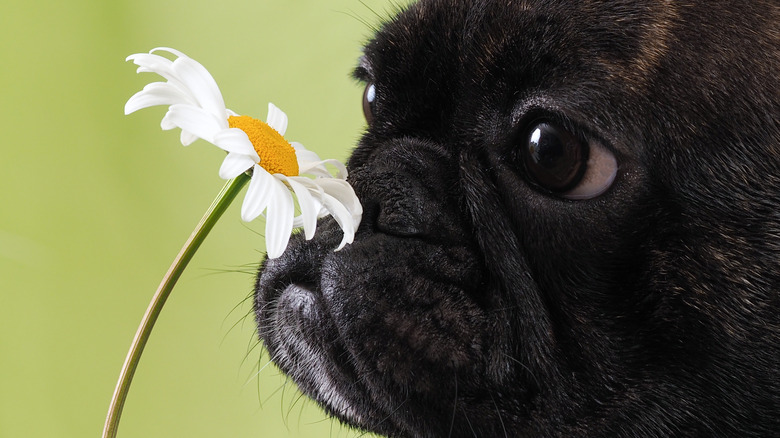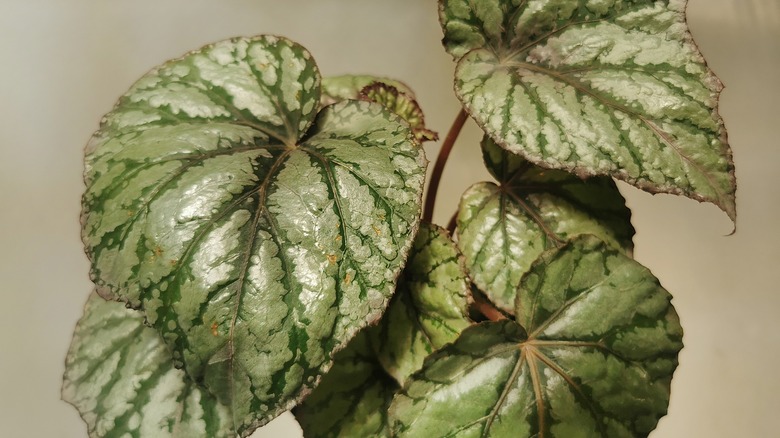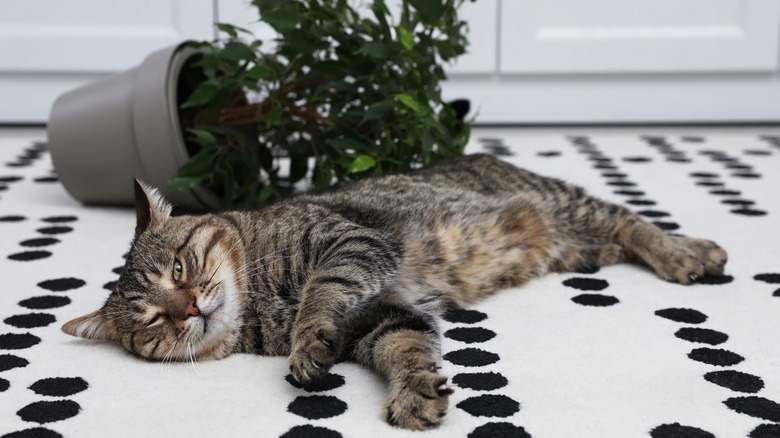How Indoor Plants Can Wreak Havoc On Your Pet's Allergies
There's nothing worse than finding your pet feeling under the weather and not being able to help them. Unfortunately, that's exactly how many pet owners feel when their furry friend is afflicted with allergies.
The trouble with allergies is that they can not only cause your pet to feel intensely itchy which in turn, causes them to scratch a lot, but this scratching can result in bleeding and skin infections (via Wag!). Allergies can also cause your pet to sneeze and have watery, runny eye discharge. Each of these symptoms collectively sums up to your best friend feeling quite miserable.
On top of that, allergies in pets aren't always easy to identify or prevent. Once other medical conditions are ruled out, your vet may surmise that allergies are the culprit, but trying to figure out whether it's a food allergy or environmental allergy can take some time, testing, and investigation (via PetMD).
With environmental allergies, keeping your pet away from the outside world is always tough, yet sometimes, the problem can come from right inside your home.
Some houseplants can cause stubborn pet allergies
While we tend to think of pets being exposed to the pollen that causes so many seasonal allergies in humans, the truth is that our dogs and cats can be allergic to our own houseplants, too. Pets can either contract an allergy from coming into contact with the pollen in houseplants or even by breathing in the pollen from the air.
According to Wag!, this can result in a myriad of symptoms, including itchy and watery eyes, sneezing, coughing, eye discharge, runny nose, scratchy throat, wheezing, irritated skin and skin infections, and excessive licking or scratching.
Some plants are worse than others and should be avoided indoors if you have a pet with a plant allergy. These include Spiderwort, Cut-leaf philodendron, Begonia, Aloe, Eucalyptus, Cyclamen, and Dieffenbachia (via 1st Pet Veterinary Centers). Yet, not all plants cause allergies and some are known to be safe when in proximity to allergic pets, such as African violets, celosia, false aralia, and many succulents.
Another thing to watch out for if you have houseplants
Once you have identified which plants may cause your pet unnecessary itching and scratching and you've either removed them from your home or made sure you've never had them in the first place, you're not in the clear just yet if you have houseplants.
It's not always the plants that can cause an allergic reaction. Sometimes, it's the soil in a perfectly safe type of plant. Mold can grow in potted plants and that can wreak havoc on your cat or dog's allergies. Over-watering can cause mold spores to grow in houseplants especially if your home has a lot of humidity (via Family Handyman), and mold can affect animals who are sensitive to it.
Mold allergies usually affect the pet's skin and cause intense itching, scaling, and flaking which can lead to bacterial and yeast infections (via Whole Dog Journal). To keep mold to a bare minimum, don't water your plants too much and make sure the soil dries out, never staying permanently wet. It also helps to use a dehumidifier or air conditioner, depending on the season, and keep humidity levels between 30 to 50% (via Bob Vila).


